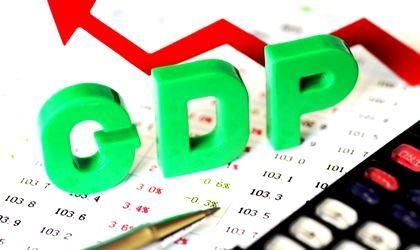Analysts at Economist Intelligence Unit (EIU) have predicted 2.2 per cent real Gross Domestic Product (GDP) for Nigeria by end of 2023 and 2.6 per cent by 2024.
Nigeria’s third quarter (Q3) 2023 GDP rose by 2.5per cent, below the 3.5per cent growth in 2022, according to National Bureau of Statistics (NBS).
In its new country report for Nigeria, EIU said, “We expect real GDP growth to pick up from an estimate of just 2.2per cent in 2023, but to remain sluggish in 2024, at 2.6per cent.
Performance will be dragged down by high inflation and monetary tightening, causing domestic demand to contract for a third year running in 2024.”
The report noted that, “In a country where the population expands at about 2.5per cent a year, this marks an unusual stretch of decline. Net exports will be the sole growth driver early in the forecast period. We expect oil export volumes to increase as security in the Niger Delta allows higher oil output; the balance will be complemented by the displacement of fuel and chemical imports in 2024 as the Dangote refinery ramps up production.
“As inflation falls and monetary policy becomes expansionary from 2025, domestic demand will return to (low) growth. Consequently, real GDP growth will rise to four per cent in 2025—the highest rate since 2014, owing partly to rebound effects—and average 3.2 per cent in 2026, 28, with the PIA and recent deregulation of the power sector expected to support investment over the medium to long term.”
According to report, inflation rate in Nigeria has continued to rise throughout 2023, and the pace has quickened since June owing to market reforms, which are likely to have powerful second-round pass-through effects.
“Currency losses on the parallel market, where a sizable share of foreign exchange is transacted, will be a major driver of imported inflation into 2024. From an estimated rate of 30.5per cent at end-2023, inflation will stay high in 2024, at 23.6per cent on average for the year, owing to a delayed and insufficient monetary response coupled with fiscal expansionism. The decline assumes that petrol prices will be held steady over much of the year.
“In latter years an undercurrent of softer global commodity prices should foster a continued disinflationary trend until 2028, although in no year will inflation fall within the 7-9per cent target range.
“Factors behind this include insecurity, a large devaluation in 2025, the need to deliver cost-reflective electricity tariffs and the CBN’s dovishness. We expect inflation to average 13.2 per cent in 2025-28,” the EIU report stated.
The research and analysis division of the Economist Group said, “the naira’s “float” in June was followed by heavy losses on the parallel market (of 45per cent against the US dollar since June), in part driven by low liquidity in the NFEM and speculation.
“The CBN has since reverted to guiding the exchange rate by limiting access to foreign-exchange sales for banks and other dealers that quote hard currency outside a preferred rate.”
EIU, according to ThisdayLive.com, said that an unsupportive monetary policy implies that the naira would remain under pressure, and the CBN lacks the firepower to adequately supply the market or clear a backlog of foreign exchange orders, valued at over $6billion, which will keep foreign investors unnerved.
The report added, “Official foreign reserves are reported at $33billion, but up to one-third of the assets are encumbered, tied up in derivative contracts or loans. In the short to medium term the official exchange rate will continue to be propped up by access restrictions, implying long lead times at the NFEM.
ALSO READ:NLC Gives Condition To End Strike, Commends Workers For Good Start, Hints On What To Do On Wednesday
“The CBN is expected to resist another attempt at convergence until petrol imports are eliminated in late 2024, with the naira ending that year at N822.9: $1, down from an estimated N810:$1 at end-2023 (accounting for some likely near-term weakening). Sizable devaluations are expected in 2025—or possibly sooner—causing a 38.5per cent loss against the US dollar over the year, to N1,142.5:$1 at end-December. However, we do not expect lasting commitment to a market-led naira, as the CBN lacks experience of conducting monetary policy under a float.
“High inflation and a continued spread with the parallel market will leave the exchange-rate regime unstable and result in periodic devaluations. We project a rate of N1,262.1:$1 at end-2028, with a continuous spread with the parallel market expected.”
